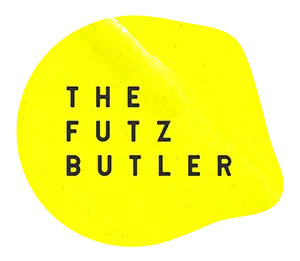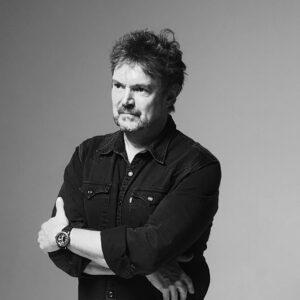After a good few years of making noise for a living, you start noticing some recurring themes.
One particular phrase crops up more than any other during the briefing process — on average, once a week, maybe more. We usually hear it when taking a music brief or during the development stage when clients want to give feedback on a track: “I’m sorry, I just don’t have the musical vocabulary to describe what I want to say.”

Let’s set the scene: creators have asked us to produce a piece of music or sound for a project and want to communicate what they need while apologising for ‘not speaking music.’
As much as we appreciate their thoughtfulness and good manners, this apology is entirely unnecessary. In this article, we’ll explain why.
Speaking music is our job, not yours
As a bespoke music production company, we have two fundamental beliefs: First, you don’t need to ‘speak music’ to get the music you want. And second, it’s the audio partner’s job — the composer or sound designer — to interpret and decode what you’re saying and what you need.
Our clients are experts in their fields: visual thinkers, product designers, marketers, filmmakers, VFX artists, screenwriters, and producers. Nobody expects them to have The Oxford Dictionary of Music on their desk. (Not even we do.)
We’re experts in noise — some melodic, some not. We live and breathe it. When we aren’t creating sound for an entire project, we’re experimenting with new ways of making it: building instruments, field recording, and pushing a piece of gear to do the exact opposite of what it says on its tin. That’s our area of expertise.
As producers and creatives, we have another equally important skill: listening and understanding what creators want when they talk to us. Our job is to decode, interpret, and translate their words into noise that works for them or their brand identity.
Sound, music, noise: our areas of expertise
This concept of expertise is essential. As movie fans, we think we know what makes a good film, but we wouldn’t presume to suggest where to put the camera or how to light a set. (Think about it: “We’re big fans of your movie, Mr. Scorsese, but wouldn’t you think this shot would be better another way?” Hard pass.)
If you went to a knee surgeon, it’s unlikely you’d open with, “Doc, I think I’ve got valgus trauma in my medial collateral ligament.” You’d say, “My knee hurts, and I want to run again.”
But for some reason, when people want to talk to us about music, they often politely apologise for lacking a music degree or the associated vocabulary. But some of the greatest guitarists of all time can’t read music, so why would you need to be able to speak it?
The fixed belief that you need to ‘speak music to get music’ can bring creative roadblocks. In trying to use language that doesn’t come easily, the risk is that the resulting track doesn’t capture your creative vision. “I thought I’d said what I wanted, but this just doesn’t feel like I’ve been heard.”
It’s like visiting a restaurant abroad and trying to list the ingredients you want in your meal in a language you don’t speak. It’s far better to point to the fireplace so they know you like it hot.
Communicating the unknowable
Composer Leonard Bernstein said, “Music can name the unnameable and communicate the unknowable.”
When we talk to our clients — or potential clients — about music or sound, we’re only interested in one thing: how do you want it to make you and your target audience feel?
Let’s look at a couple of examples.
In briefing the film score to his movie Hereditary, director Ari Aster could have made a long list of technical requirements for composer and multi-reedist Colin Stetson. Instead, he simply said, “It should sound like ‘A Sunrise in Hell'”. And it did.
A well-known director once told us, after a couple of unsuccessful attempts with other composers, that “the client wanted a jet plane. We ended up with a helicopter. What this film needs is a seagull.”

That last word says more about freedom, space, and natural sound than any doc about synths and samples versus acoustic instruments and voices.
Just tell us what you want, and we’ll interpret it.
Decoding and interpreting a music brief
As a creative team, our job is to interrogate and understand the emotions the creator wants his idea to deliver: e.g., nostalgia, shock, joy, horror, surprise, love, sadness, excitement. Nobody needs a music degree to talk about these very human concepts.
We’ll discuss at length how a creator wants their idea to make them feel, then use our expertise to trigger a good idea through sound.
For example, a filmmaker says, “I want this to sound like something my Mum would have listened to on her first date.”

Our instincts kick in, and we start thinking about recording everything through a tape machine, stacking vocals and horns in the style of those big 70s hits, making sure nothing is ‘too on the grid’ rhythmically, and likely mixing in some mono — depending on how old their mum is, that is.
This approach also avoids red herrings (trust us, we’ve heard them all). Conversations about tempo and energy can frequently be misleading. “The tempo needs to get faster here” usually doesn’t mean that at all; more likely, it’s simply the search for more excitement or energy at the same tempo as beat one.
We’ve got the chops to create those feelings through musical elements: another layer of movement on the sixteenths, a layered kick, or a 4-beat silence followed by a drop. Just say what you want to feel or what you want your target audience to feel during an emotional scene. We’ll do the rest.
The key to a music brief: say what you feel
Clients regularly tell us that this creative process’s biggest success is that they get music and sound that makes an impact, sounds like they’ve been heard, and captures their creative intent.

Sometimes, our creative team gets questions like, “How does this ‘decoding’ process work with those more commercial aspects of a brief – brand values, tight sync, the practical realities of modern media?”
The answer is that everything we’ve talked about applies here, too.
If it’s an Audio Branding brief, we’ll use our unique process to understand everything about your brand: heritage, future ambition, positioning, audience, and tone. Words like “much loved, at the cutting edge of technology, family, revolutionary, disruptive” say much more than “we need a three-second sting played on modern organic sounds.”
The same applies to narrative flow and sync: if an editor or director says, “At 46 seconds, I need to feel like I’ve walked into my favourite club at midnight,” that tells us all we need to know about energy, uplift, and emotion.
An unnamed but wise man in the music industry once said, “Writing about music is like dancing about architecture.” Words are what we have, so we must do our best with them.
But if you make those words about truth and emotion and how you, as a creator, want your idea to make people feel, then we’ll build you something special out of music and sound.
Just say the word, and we’ll make the music you want to feel.




